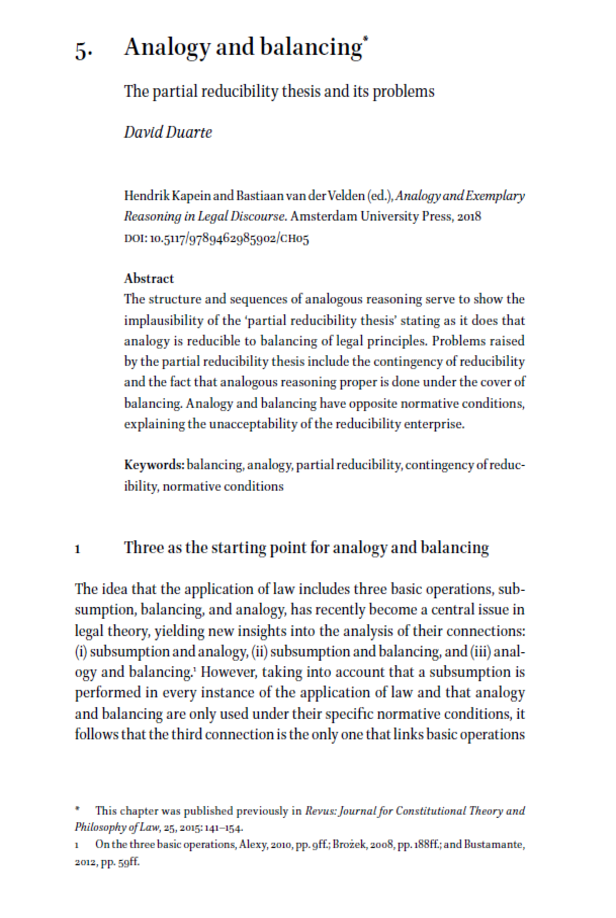The structure and sequences of analogous reasoning serve to show the implausibility of the ‘partial reducibility thesis’ stating as it does that analogy is reducible to balancing of legal principles. Problems raised by the partial reducibility thesis include the contingency of reducibility and the fact that analogous reasoning proper is done under the cover of balancing. Analogy and balancing have opposite normative conditions, explaining the unacceptability of the reducibility enterprise.
Home > Publications > Analogy and balancing: the partial reducibility thesis and its problems
Publication | Book Chapter
Theory and Philosophy of Law
Analogy and balancing: the partial reducibility thesis and its problems

Book title / Magazine:
Analogy and Exemplary Reasoning in Legal Discourse
Analogy and Exemplary Reasoning in Legal Discourse
External Author(s):
David Duarte
David Duarte
External Editor(s):
Hendrik Kaptein; Bastiaan van der Velden
Hendrik Kaptein; Bastiaan van der Velden
Within the scope of the Project:
Lisbon Legal Theory
Lisbon Legal Theory
Research Areas:
Theory of Law
Theory of Law
Bibliographic reference:
Duarte, D. (2018). Analogy and balancing: The partial reducibility thesis and its problems. In H. Kaptein & B. van der Velden (Eds.), Analogy and Exemplary Reasoning in Legal Discourse (pp. 87–100). Amsterdam University Press.
Duarte, D. (2018). Analogy and balancing: The partial reducibility thesis and its problems. In H. Kaptein & B. van der Velden (Eds.), Analogy and Exemplary Reasoning in Legal Discourse (pp. 87–100). Amsterdam University Press.
Research Group(s):
Theory and Philosophy of Law
Theory and Philosophy of Law
978-90-485-3714-3
Publishing company: Amsterdam University Press
Year: 2018



